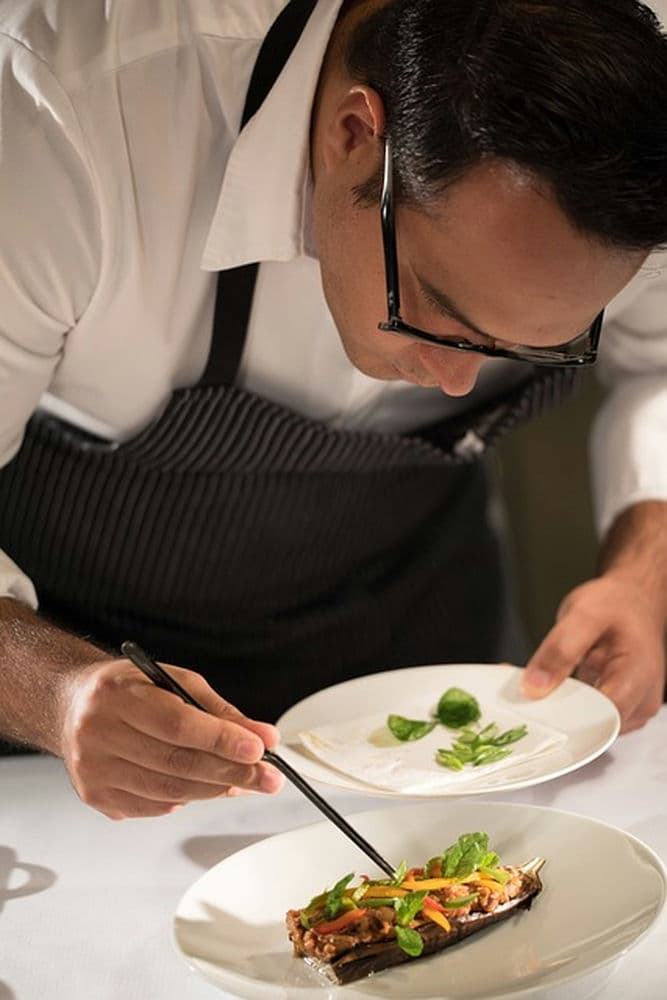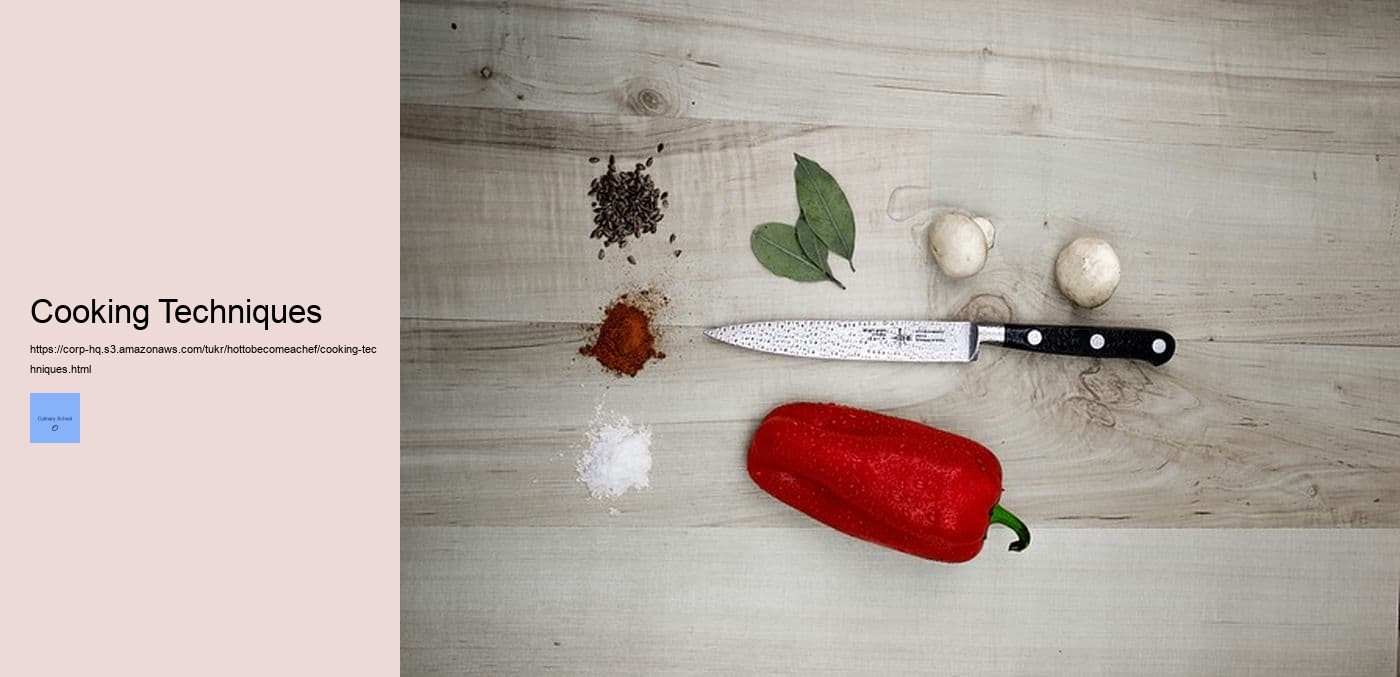

Intro to Cookin' Techniqs! (Yikes!) can be a dauntin' task for those unfamiliar with the basics. It's important to understand that cookin' is an art, not just about followin' recipes (which can be helpful). The path to becoming an accomplished chef requires continuous learning, unwavering dedication and patience through the challenging yet rewarding process. Food Preparation Food safety practices. Traveling to sample flavors and techniques from different world cuisines can inspire innovation and growth for aspiring chefs. How to become a chef Food safety practices. To make it easier, one should start by learnin' some basic techniques. Volunteering to assist with community cooking classes or events enables chefs to give back while networking and marketing their abilities. Food Preparation Food trends. Volunteering to assist with community cooking classes or events enables chefs to give back while networking and marketing their abilities. How to become a chef Kitchen experience. For example: cuttin', mixin', fryin', bakin', boilin'. These techniqs play a vital role in creatin' delicious dishes! Furthermore, they allow you to get creative and experiment with new ingredients or flavor combinations.
Moreover, techniqs such as caramelizin', sautéing and simmering are important too. Caramelizin' brings out the natural sugars of veggies or fruits; sautéeing adds flavor and texture to meats; and simmering ensures your sauces remain smooth and flavorful. Besides, understanding how each technique works will help you choose the right ingredient for your dish.
Furthermore, there are other techniqs which require practice like kneadin', braisin' and roasting . Kneadin' helps give dough its elasticity while braisin' allows food to stay moist and tender even after long periods of cooking time. Roastin' on the other hand is used when you want crunchy textures or stronger flavors from certain ingredients - like nuts or garlic cloves. All these techniqs combined create wonderful dishes that will tantalize everyone's tastebuds!
Therefore, learning (and mastering) the fundamentals of cookery is key if one wants to become a master chef! With dedication and hard work anyone can become an expert in the kitchen - no matter their skill level! So go ahead - try out some new techniques today!
Cooking is an art that requires many techniques, and using the right type of heat is one of them. Heat can be applied in a variety of ways when it comes to cooking and each approach has its advantages and drawbacks. (The most common types of heat used in cooking are conduction, convection, radiation and induction). Conduction occurs when heat is transferred from a hot surface to food directly. An example would be frying something on the stove. Convection is when heated air circulates around the food, as happens with an oven or a fan-assisted oven. Radiation involves direct exposure to a source of heat, like grilling or barbecuing over charcoal or gas flame. Lastly, induction works by creating a magnetic field which causes metals inside the pot to become hot without actually heating up the surrounding air; this method is often seen in commercial kitchens and high-end appliances.
Moreover, different types of heat can yield different results for different dishes. For instance, (conduction) works best for quickly frying foods such as eggs or omelets while convection maintains even temperatures throughout the cooking process which makes it suitable for baking cakes and pastries! Additionally radiation's intense direct heat helps give grilled items their distinct flavor but can also dry out certain ingredients if left too long on the grill. Lastly induction's efficient system allows cooks to control precisely how much heat they need with great accuracy; thus making it ideal for simmering soups or sauces!
In conclusion, each type of heat offers unique benefits depending on what kind of dish you're preparing! Therefore experimentation with various types will help you find out what suits your taste buds best! (Plus it's always fun!) So get creative and enjoy your culinary journey!
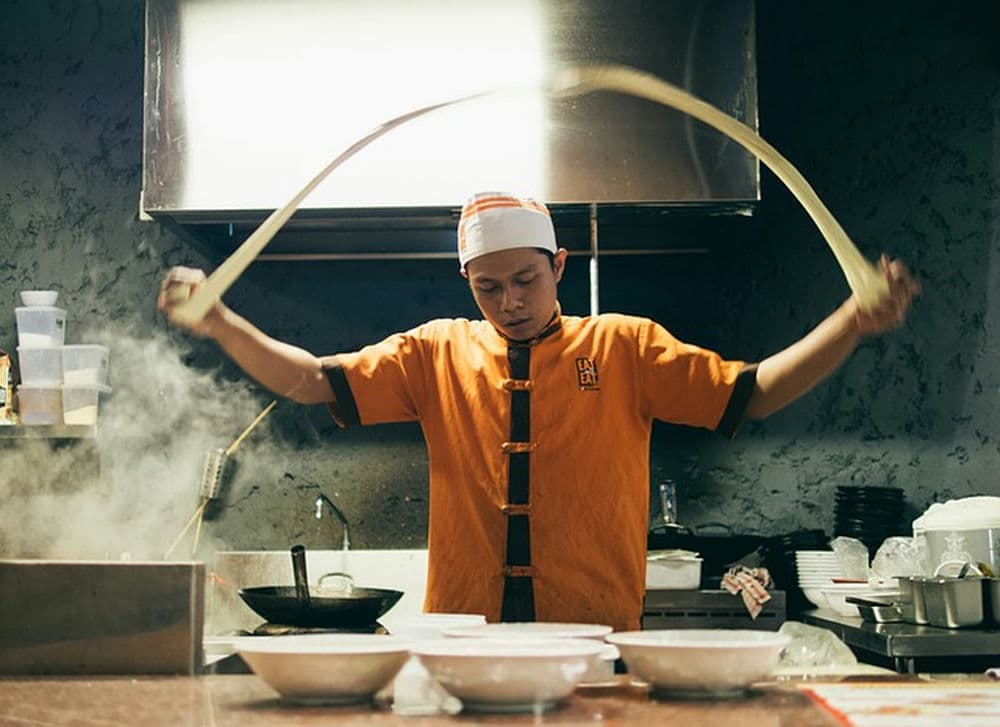
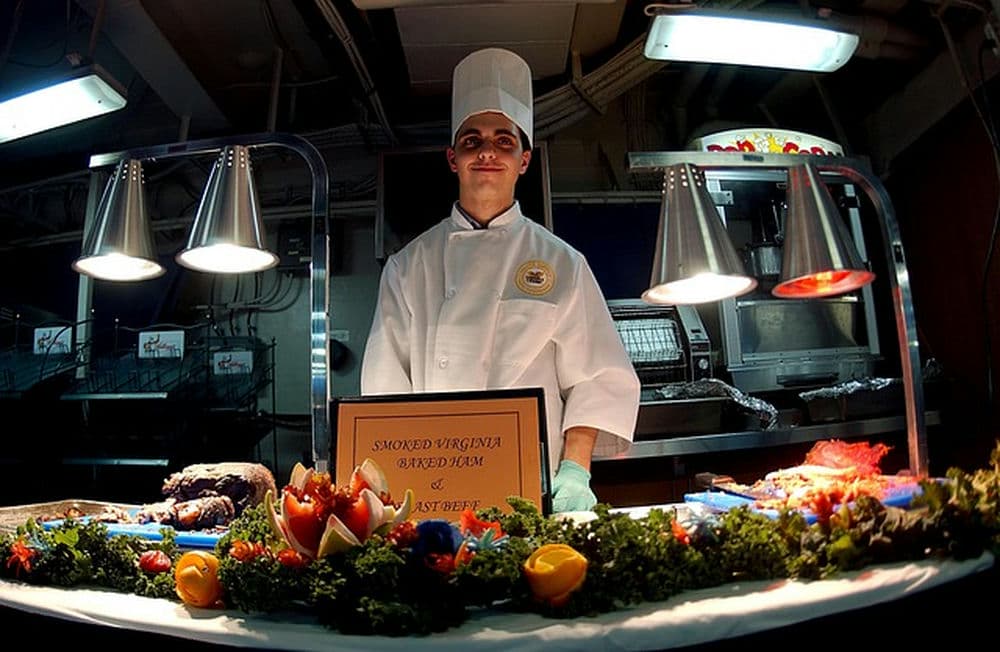
Attending a professional cooking program or culinary school can be an incredibly rewarding experience!. After researching and visiting many programs, I could confidently come to the conclusion that it is a fantastic choice for any aspiring chef. (Though there are some negatives to consider before making this decision).
Firstly, enrolling in one of these programs does require a significant investment of both time and money.
Posted by on 2023-09-03
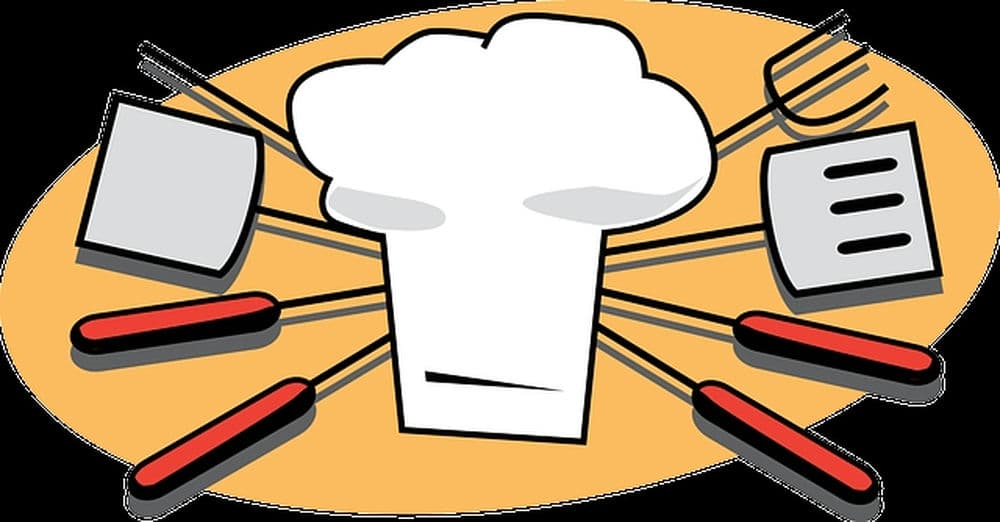
Cuisine and techniques provide us with a variety of delicious foods from around the world!. The array of flavors, textures, and ingredients used to create these unique dishes is astounding.
Posted by on 2023-09-03
Cooking is an art, and it requires a variety of equipment to master it! From pans and pots to knives and mixing bowls, there are many types of (tools) devices used in cooking. Not only do these items make food preparation easier, but they also help us create delicious meals.
The most common types of equipment used in cooking are pans and pots. These come (in) various sizes and materials such as stainless steel, cast iron, aluminum, copper and glass. Pots are usually larger than pans and can be used for boiling, steaming or simmering food. Pans on the other hand offer greater versatility; they can be used for frying, sautéing or baking.
In addition to pans and pots, a cook should have several sharp knives for cutting vegetables or meat. Knives come in different shapes and sizes - from small paring knives to large chef's knives - so that you can choose the one that best meets your needs. It’s important to sharpen them regularly because dull blades make cutting more difficult!
Mixing bowls are another essential piece of kitchen equipment. They can range from plastic bowls for everyday use to heavy-duty stainless steel bowls for commercial kitchens. Mixing bowls are great for combining ingredients together before adding them into a pot or pan. Furthermore, measuring cups enable cooks to measure out precise amounts of ingredients when following recipes precisely!
Finally, other useful items include strainers which (help) aid in draining liquid from food; graters which help shred fruits or vegetables; rolling pins which aid in making dough; whisks which allow cooks to aerate mixtures; spatulas which help scrape down sides of containers; spoons which facilitate stirring sauces etc.; peelers which enable cooks to quickly remove peels from fruits/vegetables etc…
All these pieces of equipment play an important role in cooking techniques by allowing us to prepare dishes with ease! With them we can easily bring out our inner “chef” and create wonderful meals!!
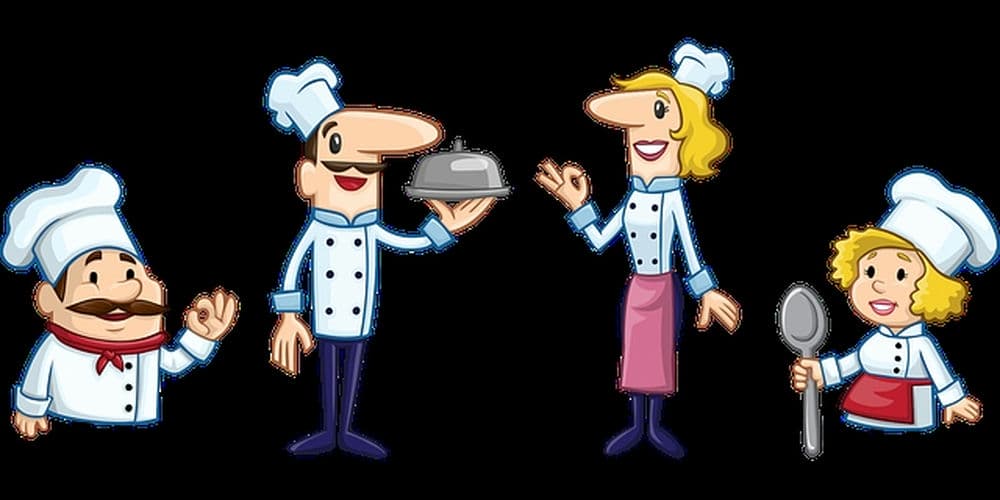
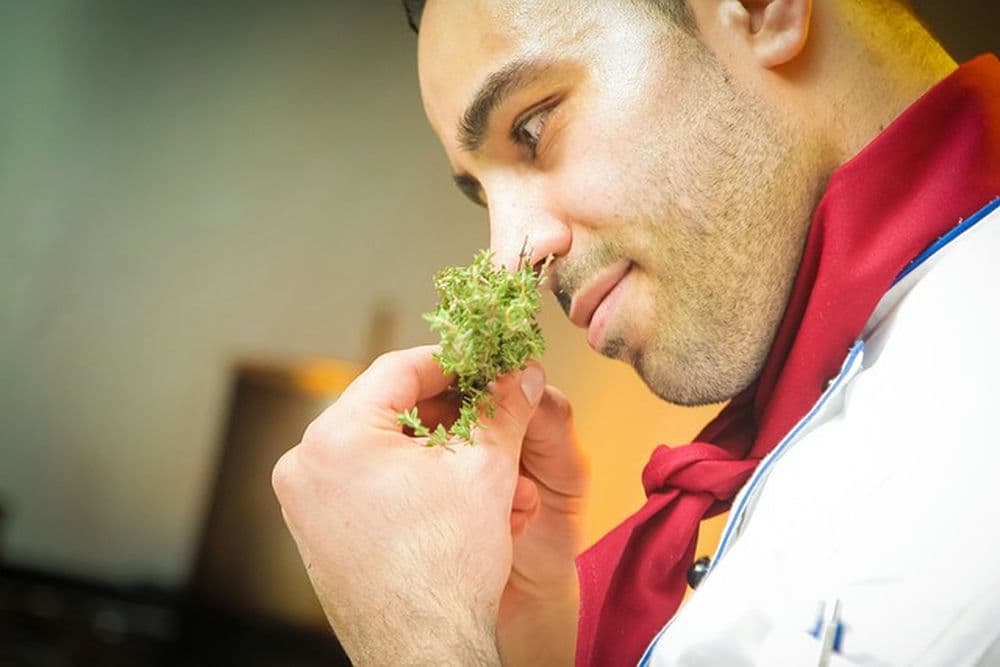
Cooking techniques can have many benefits! From improving the taste of food to preserving nutrients, different cooking techniques can add a lot to our meals. (Negation) Not only do they give us delicious dishes, but they also help in maintaining good health. Boiling is one such technique that helps to retain most of the vitamins and minerals present in food. For example, boiling vegetables retains more vitamin C than frying or sautéing them.
Additionally, roasting provides great flavor to meats and vegetables alike! It's an easy way to make food tastier without adding extra condiments or seasoning. Roasted foods are generally lower in fat as well since no oil is needed during the process. This makes it a healthy option for those who are on special diets or trying to reduce their calorie intake.
Grilling is another popular method of cooking that yields amazing results! By grilling meat or fish at high temperatures, it seals in moisture and enhances its flavor and texture. Grilling also requires minimal oil which means fewer calories consumed per meal!
Lastly, steaming is an excellent choice for people who want their food cooked quickly with little effort involved. It preserves much of the nutritional value found in foods as compared to other methods like boiling or baking. Plus, steamed dishes tend to look more beautiful and appetizing than boiled ones - making it ideal for presentation purposes too!
Overall, there are numerous benefits associated with different cooking techniques ranging from taste enhancement to nutrient preservation. With so many options available today, everyone can find something that suits their needs perfectly! So why not explore all these different methods and reap the rewards?
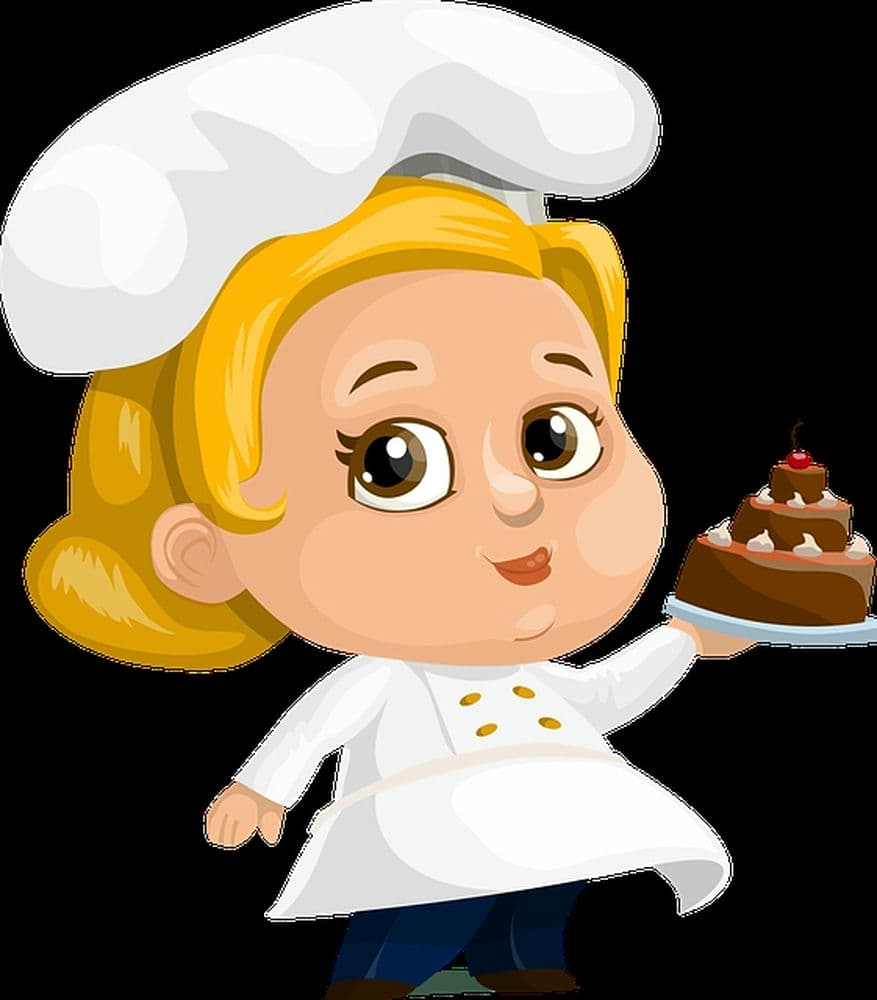
Cooking techniques can be daunting for novice cooks. (It's) important to understand the basics before diving into a complex recipe. Otherwise, you could end up making costly mistakes that can ruin a dish! Here are some common errors to avoid when using cooking techniques:
Not reading recipes thoroughly- It's imperative to read through the entire recipe before beginning. Not doing so can lead to missing out on key ingredients or steps in the process!
Furthermore, not prepping ingredients correctly- Many dishes require exact measurements and specific cuts of produce or meats. Failing to properly prepare these ingredients can throw off the entire dish.
Additionally, (not) being patient with cooking temperatures- Every food requires an optimal temperature range for proper preparation. If your heat is too low, high, or unevenly distributed it can affect the taste and texture of your meal!
Moreover, neglecting to season food- Seasoning should never be overlooked as it adds complexity and depth of flavor to any dish. Also, if you're adding too much seasoning it can easily overpower other flavors in a recipe.
Finally, not tasting as you go- As you cook it's important to sample along the way in order ensure everything is tasting correct.(It's) especially helpful when adding sauces or spices as they tend to be tricky at times! In conclusion, being aware of these common mistakes will help you become an even better chef!
Cooking is an art that requires a lot of practice and patience! (It's) not easy to perfect your cooking technique, but with these tips you can get there in no time. Firstly, it is important to experiment with flavors and ingredients. Avoid repetition of meals and try something new. Don't be frightened by failure as it usually leads to success. Secondly, use the right kitchen tools to make the process easier. A good quality knife helps in chopping vegetables faster and better, while an electric mixer makes your life much simpler when attempting complicated recipes. Thirdly, pay close attention to the temperature while cooking. Too low or too high temperatures will disrupt the flavor and texture of food significantly. Lastly, be careful when using spices; adding too much or less can ruin your meal altogether!
Transition: With that being said...
The most crucial factor for perfecting your cooking technique is patience; take your time in preparing meals and don't rush through it! Keep tasting during the process so that you have a better understanding of how much seasoning is required for each dish. Also, always keep notes on what works and doesn't work for you so that you know which steps need improvements next time around. And finally, practice regularly to hone your skills!
Cooking techniques require dedication and determination if one wishes to master them! With these helpful tips you are sure to become a pro chef soon enough!
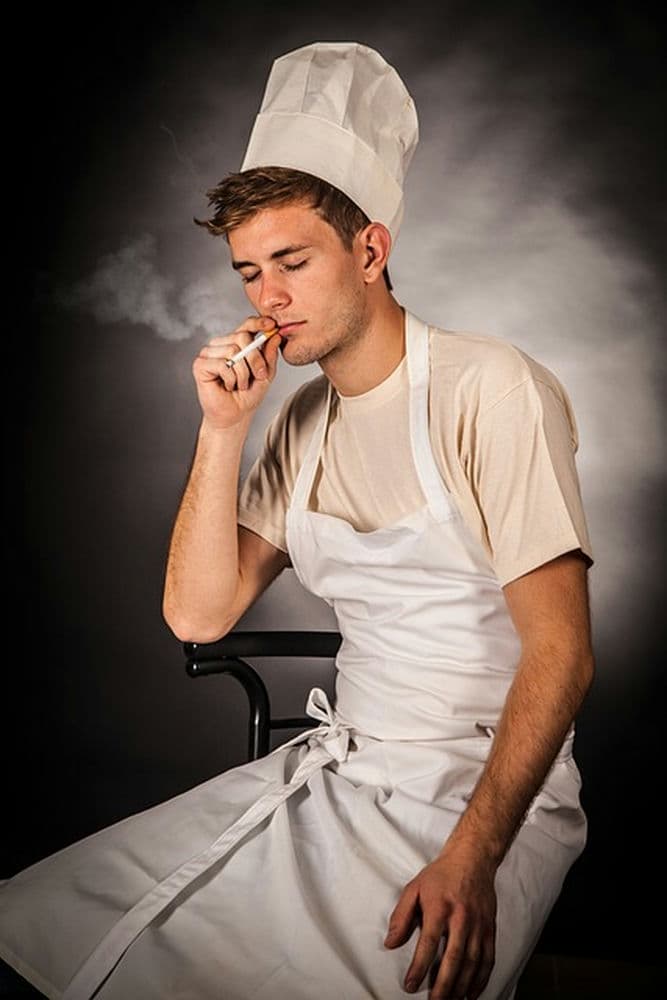
Cooking is an art that many of us strive to perfect. It can be quite difficult to master, but with the right techniques and practice, anyone can become a (good) cook. To improve your cooking skills, it's important to understand basic kitchen principles such as knife safety and food handling. Additionally, you should always taste your dishes as you go to ensure they are flavorful!
Practice is key when it comes to honing your culinary abilities. Experiment with different ingredients and recipes to expand your knowledge of what flavors work well together. There's no need to fear mistakes – in fact, sometimes they lead to unexpected deliciousness! Furthermore, seeking advice from experienced cooks or watching tutorials online can help you learn new techniques quickly.
Also make sure not take shortcuts when preparing meals – doing so could ruin the overall flavor of a dish! Take the time to properly season and marinate ingredients for maximum flavor impact. And don't forget: presentation matters too! Taking extra care while plating up food will make it look more enticing and appetizing.
Overall, becoming a better cook just takes dedication and practice - there's no need (for) fancy gadgets or expensive ingredients. With some patience and creativity, anyone can create amazing dishes at home that are sure to impress their friends and family!
In conclusion, improving one's cooking skills requires an understanding of kitchen basics like knife safety; experimenting with different ingredients; seeking advice from experienced cooks; taking the time not(to) take shortcuts; properly seasoning ingredients; paying attention(to) presentation; and having patience! With these tips in mind, everyone can become a great chef in no time!!
Cooking techniques are an important part of the culinary world. They allow chefs and hobbyists alike to create delicious meals with confidence and skill. But mastering these techniques is not easy, so it’s essential to seek out resources and references for further study! (The internet is full of information!)
For starters, cookbooks can be a great source of information. There are plenty of them available on all kinds of cooking topics - from baking breads to preparing complex dishes. Plus, they offer step-by-step instructions and helpful visuals that make learning new skills much easier. Also, don’t forget about online blogs! Many food bloggers provide useful tips, tricks, recipes and more - all in one place.
Moreover, there are tons of instructional videos out there which demonstrate different cooking methods in real time. Watching someone else prepare a dish can help you visualize the process better than just reading or hearing about it! So if you want to learn something quickly and easily take advantage of YouTube tutorials.
Finally, consider taking a hands-on class at your local community center or culinary school. This will give you not only the opportunity to practice new techniques but also gain valuable feedback from experienced instructors. And who knows? You might even make some awesome friends along the way!
All in all, resources and references for further study on cooking techniques are plentiful - from cookbooks to videos and classes - so don’t be afraid to explore them! After all, practice makes perfect when it comes to mastering any craft – especially cooking!
